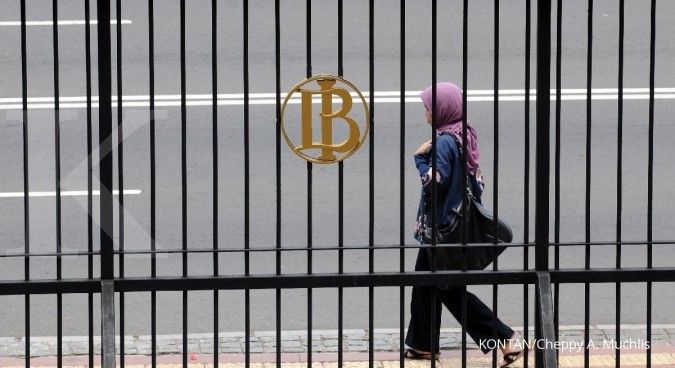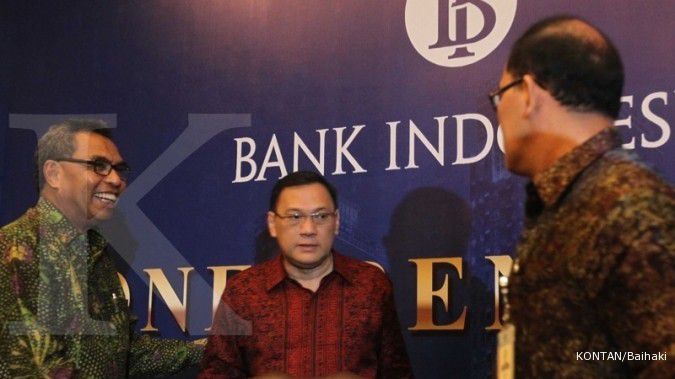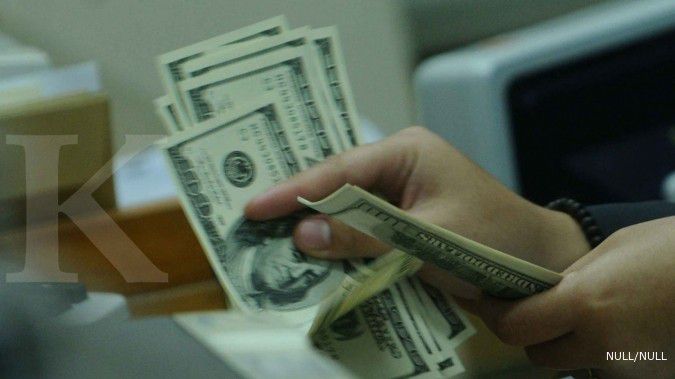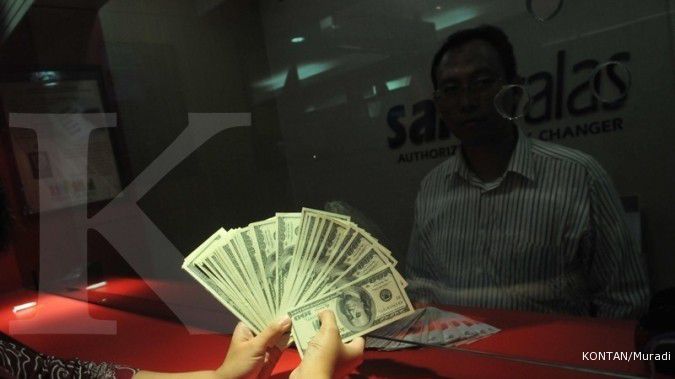The weakening rupiah, which has plummeted to over 11,000 per US dollar, is causing both economic curse and windfall for local businesses.
Coal and metal diggers, as well as crude palm oil (CPO) and rubber producers, in particular, are among those benefiting from a higher dollar exchange rate against the rupiah.
Mining and plantation products remain the country’s biggest contributors of exports to date.
Bahana Securities’ figures showed that every 1 percent drop in the rupiah would result in some percentage point increases in earnings for the mining and plantation firms. For example, every 1 percent drop in the rupiah would cause Jakarta-listed tin miner PT Timah to enjoy 5.2 percent jump in net profit.
Similarly, the depreciation of the rupiah would also push up the net profit of state-owned coal miner PT Bukit Asam, which exports more than half of its coal products, by 0.5 percent.
With every 1 percent drop in the rupiah against the dollar, CPO producers PT Astra Agro Lestari and PT Sampoerna Agro would record a net profit increase of 3.4 percent each.
The rupiah fell 3.7 percent last week to average at 10,780 per dollar, according to prices compiled by Bloomberg from local banks. Bank Indonesia’s (BI) rupiah middle rate stood at Rp10,848 per dollar last Friday, already a 12 percent fall year-to-date. However, local banks sold and bought the rupiah last week for more than Rp 11,000.
“Almost all of our expenditures are in rupiah while our income is in dollars,” Timah corporate secretary Agung Nugroho said of the company’s gain from the weakening rupiah. “However, it is only a false benefit.”
Timah has been suffering from a tin price decline due to weakening demand due to the poor global economic situation, so have coal miners and CPO producers.
Reports from several coal miners listed on the Indonesia Stock Exchange (IDX) showed a 20 percent year-on-year drop in coal selling prices in the first half of the year. Indonesian CPO producers also saw a two-digit drop in selling prices during the same period.
“CPO consumers holding dollars will have more purchasing power [now], boosting sales volume,” Sampoerna Agro’s head of investor relations Michael Kesuma said, explaining how the weakening rupiah would offset the firm’s losses resulting from declining CPO selling prices.
“Domestic buyers with local currency will also need to pay more if they still want to get CPO amid increasing purchasing ability of the dollar holders.”
Around 90 percent of Sampoerna Agro’s CPO is sold to the domestic market.
On the gloomy side, importers with earnings in rupiah are now feeling the pinch as the strengthening dollar would require them to spend more on imported raw materials.
“Consumer goods companies such as PT Japfa Comfeed, PT Unilever Indonesia and PT Indofood CBP are among the losers amid the weakening rupiah,” Joseph Pangaribuan of PT Samuel Sekuritas said.
According to Joseph, about 80 percent of Unilever’s costs are in dollars, while selling most of its products in the domestic market to bag more local currency. Noodle maker Indofood CBP is also suffering due to its high dollar borrowings needed to import wheat.
Pharmaceutical firm PT Kalbe Farma and state-owned steel maker PT Krakatau Steel are also feeling the pinch due to their dependence on imported raw materials.
“Our spending on raw materials is 35 percent of total sales. If the rupiah depreciates by 10 percent, our cost will be 3.5 percent higher,” Kalbe Farma director and corporate secretary Vidjongtius said, adding that the company, which had inventory in the greenback and held enough of it to cover spending for three months, would likely start to feel the impact in the next three to six months.
The weakening of the rupiah is also negatively affecting airline firms, including PT Lion Air.
“About 70 percent of our costs are related to the dollar, and around 95 percent of our earnings are in rupiah. No doubt the decline in the rupiah is affecting us,” Lion Air spokesperson Edward Sirait said. (Raras Cahyafitri)
Keuangan
/2012/02/17/705645284.jpg)














